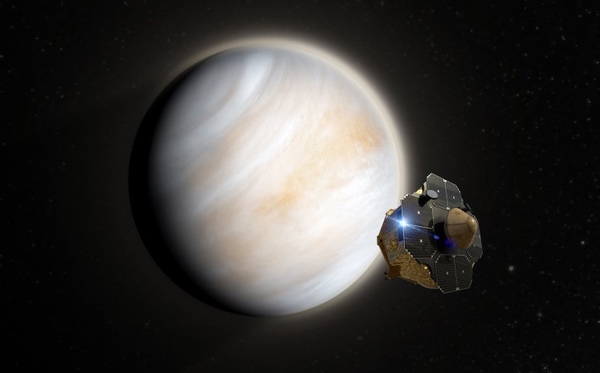A COTS-like alternative for planetary explorationby Louis Friedman
|
| he combination of successes by MarCO and LightSail suggest a new approach: public-private partnerships. Planetary exploration is likely not commercial, but it certainly can be done with public-private partners. |
She noted that the budget projection is below the prioritized list generated by scientists in the most recent decadal study. And, as hopeful as that list might be, even it delays the strongly held scientific interest in exploring the water vents of Enceladus, the possible organic lakes of Titan, and the plethora of Kuiper Belt Objects, including a Pluto deeper dive. Any 40-year-old planetary scientist is likely to be retired by the time of any of those planetary encounters and the principal investigators for data collection on some of them may not have yet been born.
Rather than accepting the conundrum imposed from the stresses, a workaround should be sought. One approach to such a workaround comes from the highly successful initiation of the commercial cargo and crew programs, like Commercial Orbital Transportation Services (COTS). It was not initiated because NASA human spaceflight wanted to give up on their space launch system. It was started as a comparatively low-budget venture as a new way to cope with budget dilemmas. And it worked! Without this approach, the US would be doing a lot less human spaceflight. A similar result is happening with the Commercial Lunar Payload Services (CLPS) program, stimulating more lunar missions.
We have a similar situation in planetary: we may have to delay a lot of missions flying unless we can invest in a low-cost venture to simultaneously exist with and even support the main-line (decadal) plan. That is to be emphasized: I am not recommending a Plan B, just a Plan A’, one that can coexist with and even support the decadal flagships and New Frontiers and Discovery programs (all in billion dollar, or near-billion-dollar, category), but cost an order of magnitude less (e.g. $100 million). There are a few ideas around, but none have NASA interest. With a little investment these ideas could be nurtured.
One is the nascent Venus mission by Rocket Lab, a commercial venture to a planet. Another one that I have been working on is deep-space exploration with small solar sailcraft, enabled by two new successfully demonstrated technologies: interplanetary smallsats like Mars Cube One (MarCO) and solar sails like IKAROS and LightSail. The combination of successes by MarCO and LightSail suggest a new approach: public-private partnerships. Planetary exploration is likely not commercial, but it certainly can be done with public-private partners. Smallsat missions for Mars were also suggested by a Mars Architecture Strategy Working Group.
We could perhaps have fast flybys of Enceladus and Titan, and to the Uranus, Neptune, and Kuiper Belt systems before 2035! That is flybys by then, not just mission starts. They wouldn’t be the decadal desired missions but they could be gap-fillers, scouts, or pathfinders with special purpose instruments. And, in those ways, they can make the eventual decadal missions even better.
Note: we are using a new commenting system, which may require you to create a new account.
